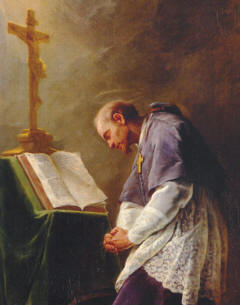3rd
Sunday in Ordinary Time, Luke 1:1-4, 4:14-21
Since
many have undertaken to compile a narrative of the events that have been
fulfilled among us, just as those who were eyewitnesses from the beginning and ministers
of the word have handed them down to us, I too have decided, after
investigating everything anew, to write it down in an orderly sequence for you,
most excellent Theophilus.
In the opening lines of his
Gospel, St. Luke gives us a clear indication of the active human role in the
writing of Sacred Scripture. Though the Bible is truly the word of God and not
merely the words of men, yet it is also correct to say that it is really and
truly the words of men and not solely the word of God.
The books of Scripture are
occasional writings – i.e. they were written at the will of the human author
who desired to address a particular situation in a particular moment of time
and place. St. Luke states very clearly that he has decided to write account of the Gospel, and he does not fail to mention
his own labors in compiling an orderly narrative by means of carefully investigating everything anew.
This book is most certainly the
work of St. Luke, and yet St. Peter teaches us that Prophecy [of Scripture] came
not by the will of man at any time: but the holy men of God spoke, inspired by
the Holy Ghost (2 Peter 1:21). How can the Bible be both the word and works
of men, and also truly and indeed the very word of God?






